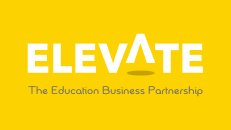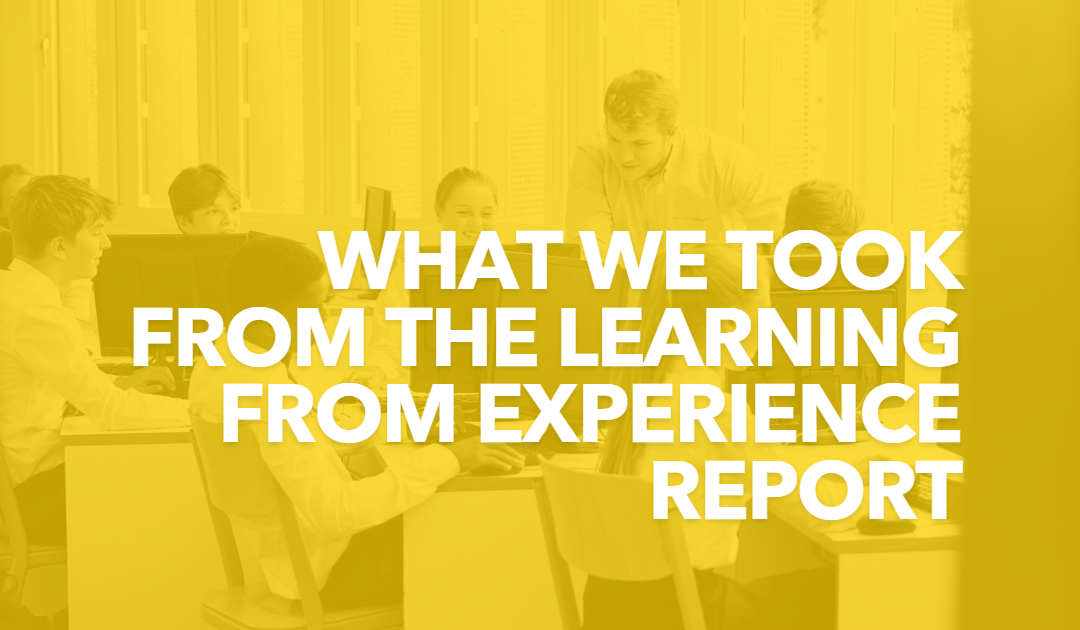There are huge social, economic, and equitable benefits to providing learning in the workplace and a plethora of provider interest to be unlocked. Despite this, we still face growing calls for valuable work experience in our schools and better-established employer networks within the education sector.
As detailed in the Social Market Foundation’s recent Learning from Experience report – created in partnership with Speakers for Schools – educational establishments and employers with the time and resources to provide quality placements are producing students with higher confidence levels, increased aspirations, and a reduced likelihood of becoming NEET (Not in Education, Employment or Training) in later life. As the Education Business Partnership for the Liverpool City Region, Elevate EBP thoroughly agree with these findings. With an employer network spanning over nearly 25 years, and a Work Experience programme that generates an average social impact value of £30,749 per placement, we’re delighted to welcome the recommendations set out in this report.
Here are five key points we took from the report:
1 The benefits of Work Experience
-_are recognised by students:
Students themselves notice the benefits that work experience can have. Young people that had completed work experience highlighted to SMF that following their placement they had a better appreciation of the realities of working and stronger employability skills. Work experience was also reported to have a positive effect on their academic outcomes.
“My work experience with British Airways was particularly useful in contributing to my choice in further education, showing me just how passionate I am about the tourism industry, and supporting my aspirations to improve the industry from a sustainable perspective. Whilst learning more about British Airways’ operations and exploring their prospects for future sustainable improvements and adaptations, I also had the opportunity to share my thoughts and ideas with others, coming up with suggestions to reduce negative environmental impacts of flights.”
Current college student speaking on the Speakers for Schools Youth Panel.
2 Pre-placement preparation creates higher —quality work experience:
Identifying and preparing for an individual’s needs, interests, and expectations, and investing the time and resources needed to collate these factors will assist coordinators in personalising placements to specific students. Providing work experience that is well-matched offers the young person an opportunity to reflect on the placement, what they learnt, what went well, and what didn’t. A work placement is more likely to be beneficial if the student wants to be there.
3 There is opportunity to connect more
—businesses with the education system:
There are employers that are optimistic about providing work experience placements – some of which say that the reason they do not do so already is because nobody has asked them. A larger number of employers say that they don’t offer work experience because they’ve simply never thought about it.
“Yet there is latent employer interest in work placements that needs to be unlocked:
11% of employers do not offer work experience because they have never thought about it, 7% because nobody has asked yet”
– From the Social Market Foundation’s ‘Learning from Experience’ report.
4 Building relationships with employers
—cannot happen overnight:
The relationships needed to provide quality placements take time to build. First-time work experience providers in particular require support and communication. Established relationships with these employers enables them to build up their confidence and capacity to take students on.
5 Local brokerage organisations are
—Crucial to the coordination of Work
-_Experience:
There is a lot of pressure on schools to facilitate quality work experience and they don’t always have the time, capacity, or resources to do this. Delegating this responsibility not only makes use of an organisation’s readily established network, knowledge, process, and paperwork. It also relieves pressure on Careers Leaders, who can better invest that time into providing personalised advice and guidance to students and integrating an understanding of the labour market into the wider curriculum.
To read the full report by Social Market Foundation and Speakers for Schools, please click here.
PRIVACY Policy
Elevate EBP Ltd honours the rights of its partners, employees and customers, including website visitors’ right to privacy and data protection. The EBP is fully committed to complying with the provisions of all applicable Data Protection legislation and regulations such as Data Protection Act and EU GDPR.
Click here to view our Privacy Policy.
![]()
The Education Business Partnership, Sefton House, Bridle Road, Bootle, Liverpool, L30 4XR
0151 330 5758
info@elevate-ebp.co.uk


Recent Comments